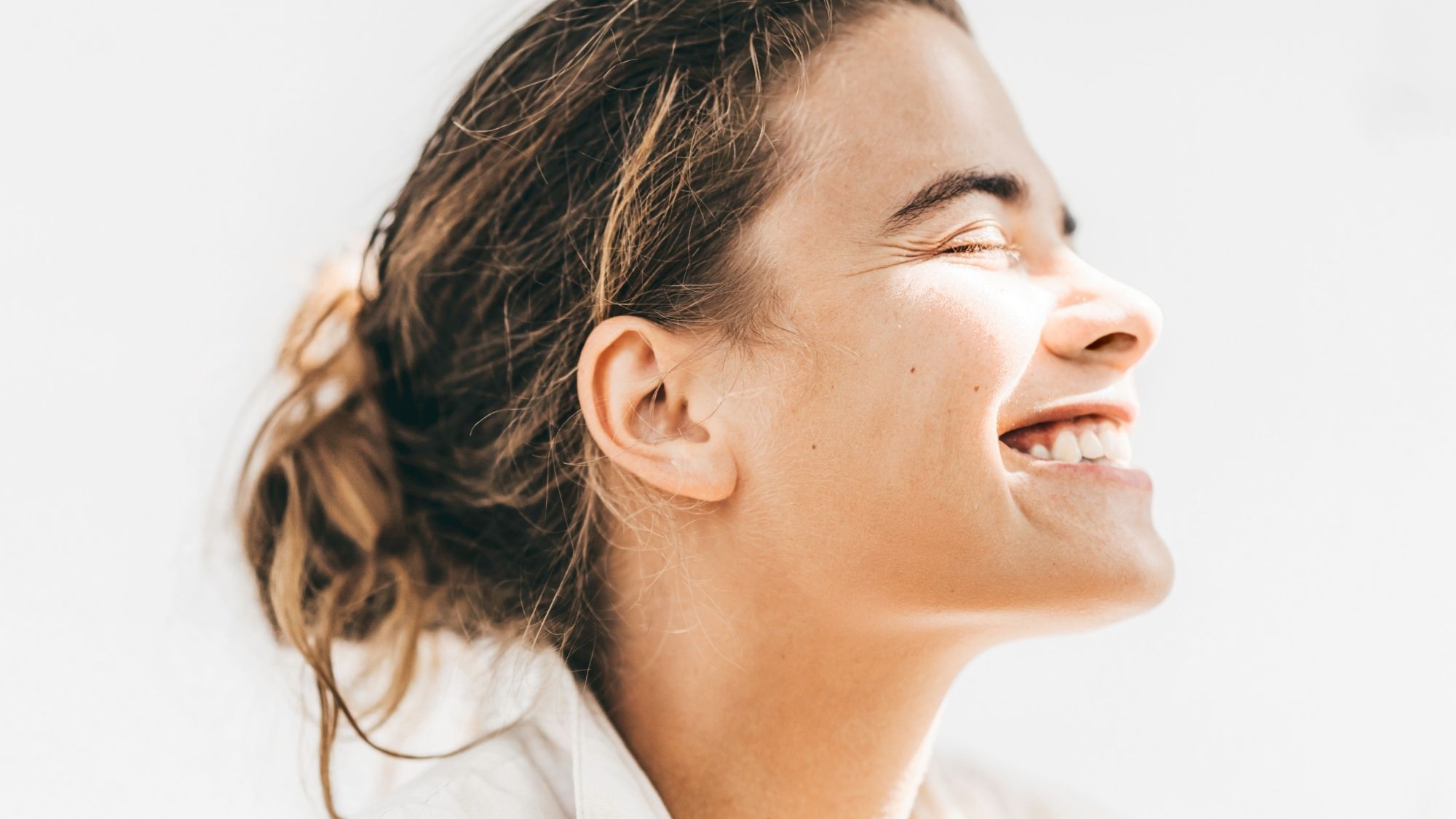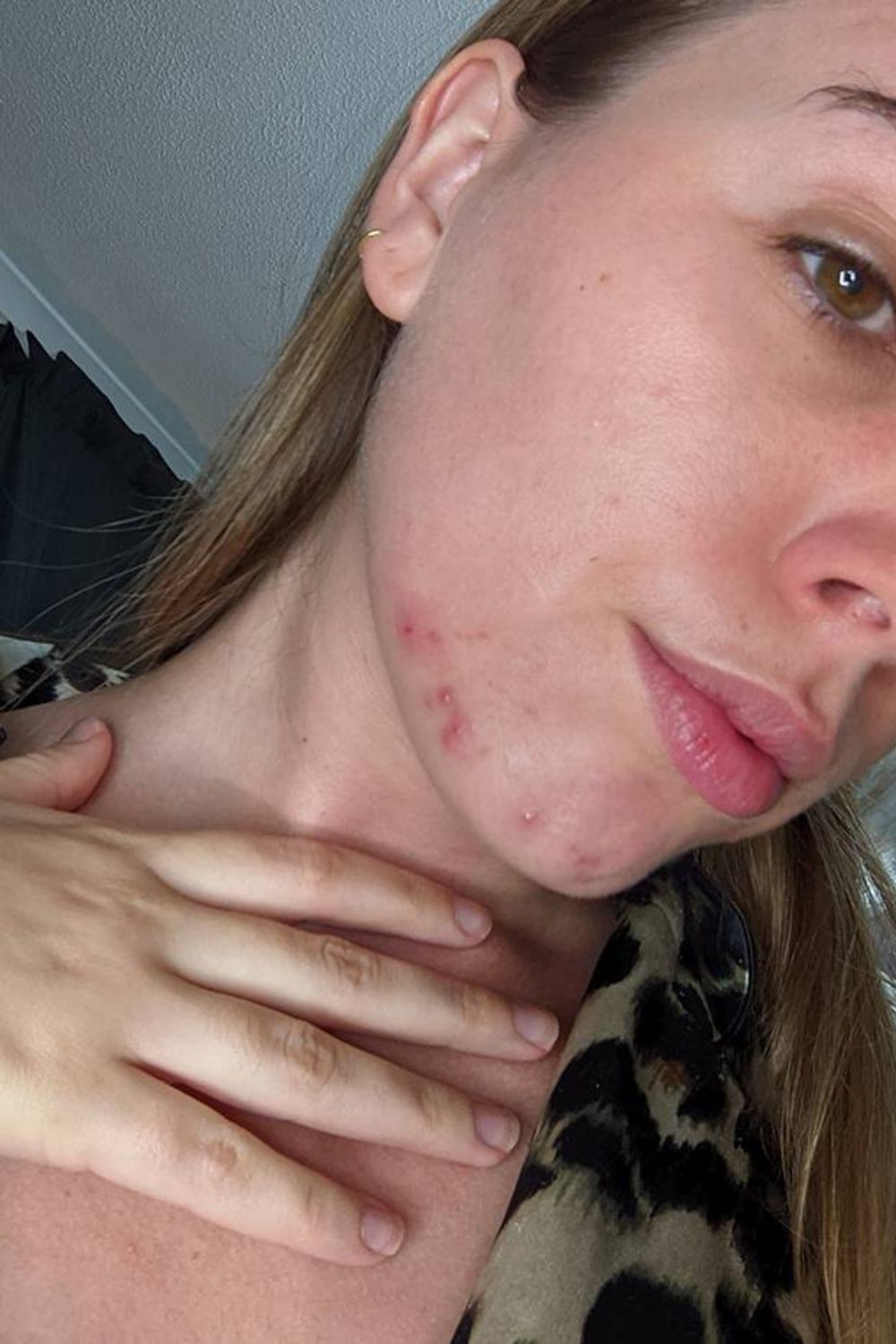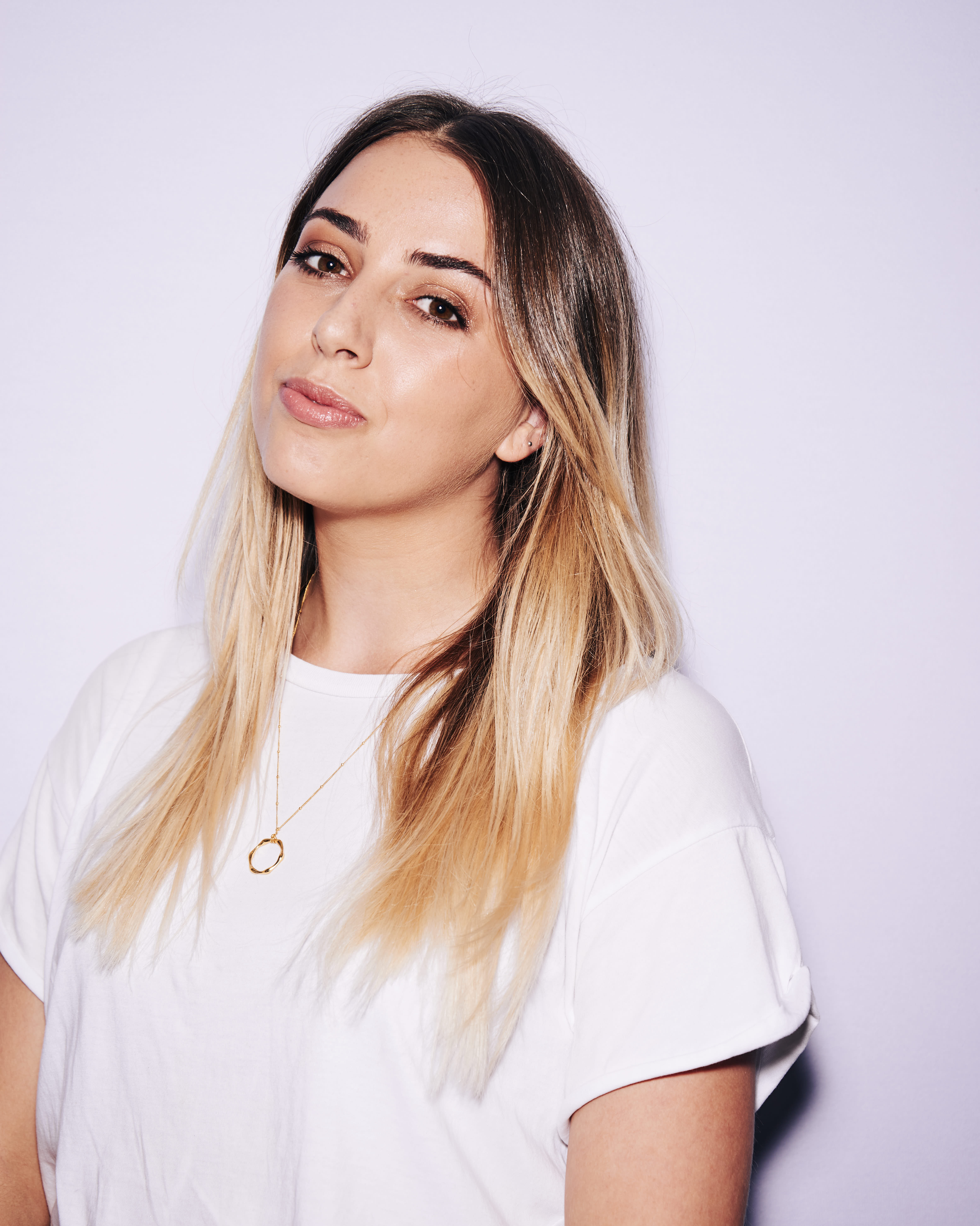I've struggled with stress-induced acne for years—these are the 4 expert-approved changes I've made to my daily routine that really help
A consultant psychodermatologist weighs in...


Turns out, stress-induced acne is a real thing. Despite having been a beauty editor for many years, I have to admit I have spent most of my career hunting out a fix for acne in the form of the best acne treatments, rather than being curious about the causes. But, when I developed adult acne myself a few years ago, I found myself at a loss—despite having the best products as my disposal, nothing I did seemed to get rid of it. I perfected my skincare routine for acne—using the right acne face washes and the best spot treatments—but still, my chin acne prevailed.
After a few visits to a dermatologist, she concluded that it seemed as though something wasn't right internally—perhaps a hormone imbalance or high cortisol levels. And it was the mention of high cortisol that rang alarm bells. I was stressed. I was in the process of moving house, work stress was at an all-time high and I was sleeping on average 6 hours a night. And despite all of this, I carried on. She prescribed me a medication which helped clear things up while I continued with my high-stress, unmanageable lifestyle but warned the acne was likely to return as soon as I stopped taking it unless I changed my ways.

My stress-induced acne is always most prominent along the jawline and chin
I carried on taking the medication for two years, until a year ago, I decided I was cured. Spoiler: I was not. As my dermatologist had predicted, my acne returned just a few months after I stopped taking my medication. And for the first time in my career, I became more interested in tackling the root cause of my acne—stress.
I started making some simple changes to my daily routine in a bid to reduce my stress levels and committed to them. Have I become totally zen? Absolutely not. Ask any of my colleagues and friends and they'll agree I'm prone to the odd stress-induced panic. However, I have noticed a huge change in my skin. While I do still get the odd cystic breakout, they're no where near as frequent as they once were—and it hasn't involved me having to fork out a fortune on products.
To get a better understanding of the impact of stress on acne, I sat down with consultant psychodermatologist for La Roche-Posay, Dr Alia Ahmed. Here's what she had to say, plus the simple lifestyle changes I've made (which come Dr Ahmed approved) to manage my stress-induced acne.
The effect of stress on the skin
The effect of stress on the skin is actually quite scientific, but it's important to understand the role our emotions play on our skin in order to make the necessary changes (and ultimately look after ourselves better).
"I talk about stress a lot when it comes to skin, but I should say emotional distress—that includes negative mood, anxiety, stress and adrenaline. Your brain sees these things as a signal for emotional distress and it activates something called the HPA axis, which releases cortisol. It does other things as well, but it's cortisol that is the main problem," explains Dr Ahmed.
Celebrity news, beauty, fashion advice, and fascinating features, delivered straight to your inbox!
And although our body requires cortisol for many things (particularly when we need to act fast and get on with things), it does have its drawbacks when released in excess. "It's very pro-inflammatory. So if you have an existing skin condition, it can aggravate it. If you haven't got a skin condition, it can also bring one on because it causes skin barrier dysfunction. It changes the way your skin's immune system responds, making skin less able to defend itself, it affects wound healing, it can also cause problems such as dryness, itching and pigmentation and it causes an increase in oil production, which is one of the drivers for acne," adds Dr Ahmed.
And while skincare is understandably important is preventing acne and keeping active acne at bay, so too are lifestyle factors. "I talk a lot about sleep lifestyle and diet. There are a lot of diet myths around acne, but some people do have diet-related triggers, so it's important not to rubbish them. I often ask my patients what they do in a day that is for them, and there is often silence," says Dr Ahmed.
Keep scrolling for the Dr Ahmed-approved changes I have made to my daily routine in a bid to keep my stress-induced acne at bay.
Tips for stress-induced acne
1. Meditate as often as you can
I have to admit, this is the one tip I thought I would never listen to, but after hearing what Dr Ahmed had to say, I've found it to be one of the most impactful changes. "Meditation doesn't have to entail the cliché 'sitting on the floor with your legs crossed'. It's about doing things mindfully. It could be going for a walk and focusing on the weather, what you're looking at or the feeling of your steps against the floor. You can do it when you're having your morning coffee—focusing on the taste, the smell and the way it feels in your mouth," she says.
I have tried many forms of meditation on-and-off over the years, but nothing has ever stuck. However, after taking my stress levels more seriously, I took some expert advice and downloaded the Calm app. I pay £39.99 for an annual subscription (which is less than a pay out per month for all of my TV streaming services) to access daily meditation and wellbeing practises. As soon as I get on the bus on my way into work, I put in my headphones, close my eyes and listen to Tamara Levitt's Daily Calm, which usually lasts for around 10 minutes. And as much as I like to think I have aways been totally in control of my own emotions, since doing this (I've been doing it religiously for around 3 months now), I have noticed a huge difference to my stress levels throughout the day.
2. Do one joyful activity every day
I'll admit, this is the change I have struggled with the most. "It's about doing one thing that you really enjoy doing every single day. It could be a simple thing like having a coffee or talking to a friend," says Dr Ahmed. It seems so simple, but my hectic schedule and daily stresses meant I had got to a stage where I had subconsciously sucked the joy out of anything I once found enjoyment in. I started off by making a conscious effort to call a friend or family member every day for a catch up—something I was stressed about not doing enough. But after a few weeks, I found myself regulating the activity. Catching up with friends over the phone became something I was checking off my 'to do' list, which is the last thing I wanted, so I knew something had to change.
I ran through a number of different activities I thought I would find joyful, but the stresses of daily life managed to find a way to seep into everything I tried. My last-ditch attempt was to buy a puzzle. My partner laughed at me, but since buying my first puzzle I have set aside 20 minutes every day to sit without a screen down and do it. Now, I find myself looking forward to my 'puzzle time' every day.
3. Use your skincare as selfcare
As a beauty editor, I know first hand just how relaxing doing your skincare routine can be—and I'll admit this isn't a recent change. "Skincare can be your selfcare. You're going to do it anyway so at least enjoy that 10 minutes, and then go back to your hectic lifestyle," advises Dr Ahmed.
Although acne-targeting skincare can feel clinical at times, the way you use it doesn't have to be. For example, right now I'm using a basic CeraVe Foaming Cleanser followed by La Roche-Posay Effaclar Duo+M every single evening. And although the products themselves aren't particularly flashy or calming, I make sure I take the time to enjoy taking off my make-up and applying my skincare.
If you struggle to find the time to apply your skincare all at once, Dr Ahmed recommends breaking things up into shorter, more enjoyable experiences. "Work might be busy, but you can start your skincare when you come in. A couple of hours later you can put your night cream or serum on. That way you're still doing the same steps, but you're making your routine last longer," she says.
4. Prioritise sleep
A lack of quality sleep is a major problem for me and my skin. I noticed around 18 months ago that there was a direct correlation between my acne flare ups and me feeling exhausted.
"Your body has a circadian rhythm which means your cortisol levels dip at night. However, the cortisol level only dips at certain hours. It's no good getting your 8 hours but going to sleep at 2am and waking up at 10am, because your cortisol levels start to rise again in the morning. Your skin also repairs itself, so all of the regenerative, reparative processes happen over night," explains Dr Ahmed.
In a bid to put my sleep first, I spent a few weeks jotting down the time in which I was going to bed and noting the activities I had been doing beforehand. Personally, I found that the nights I struggled to sleep were when I had particularly stressful days, tied to my laptop with a lack of movement.
Although I'm no gym bunny (seriously, I hate working out), I decided to subscribe to the at-home fitness app, Fiit. I have committed to a class every single day as soon as I finish work. And that doesn't mean seven days of workouts. Some days I'll do a 10-minute stretch, while others I might do a 25-minute strength training class. I have found that moving my body really helps me get to sleep easier. And while I know this might not work for everyone, I can highly recommend keeping track of your pre-bed habits to help target what might work best for you.

Shannon Lawlor is the Beauty Director at Who What Wear UK. With nearly a decade of experience working for some of the beauty industry’s most esteemed titles, including Marie Claire UK, Who What Wear, Glamour UK, Stylist and Refinery29, Shannon’s aim is to make the conversation around beauty as open, relatable and honest as possible. As a self-confessed lazy girl, Shannon has an affinity for hard-working perfumes, fool-proof make-up products and does-it-all skincare.